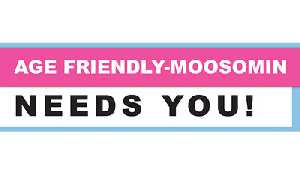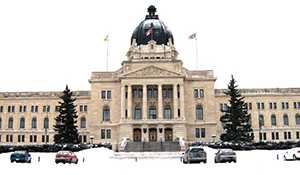Small firms to pay almost half the carbon tax
But will get only 7 per cent back, while many large carbon emitters have been given exemptions
February 23, 2019, 8:44 am


Small businesses will pay almost half of the carbon tax when it comes into effect in April, but will get only seven per cent back.
The majority of small businesses in Saskatchewan, Manitoba, Ontario and New Brunswick oppose the federal carbon backstop plan, which is set to come into effect this April in the four provinces, says the Canadian Federation of Independent Business (CFIB).
The CFIB says the plan unfairly burdens small businesses, which will contribute almost 50 per cent of carbon tax revenues, along with municipalities, universities, school boards and hospitals, but will receive just seven per cent back in the form of rebates and grants.
“With consumers receiving 90 per cent of the ‘Climate Action Incentive’ payments and many large emitters receiving carbon tax exemptions, small businesses are left holding the bag,” said CFIB president Dan Kelly.
“The government’s technical documents state that small businesses are expected to simply pass their added costs down to consumers, but 80 per cent of small firms in the four provinces report they will be able to pass on less than one quarter of the new costs,” Kelly added.
“In fact, over half of small firms said they will have to eat the entire new cost, on top of the seven years of CPP premium increases already underway. These costs will hamstring their ability to compete, and paradoxically, invest in emissions-reducing solutions.”
CFIB Vice-President Marilyn Braun-Pollon told the World-Spectator last week that the CFIB conducted the survey to make it clear to the public the impact the carbon tax could have on small business.
“We want to raise the awareness of who is going to pay for it and where the costs will be felt,” she said. “It’s clear that 90 percent of the payments are going to go to consumers, with small businesses left holding the bag. This is nothing more than a tax grab. It does nothing to actually reduce emissions, so it’s little wonder that business owners are concerned.
“It fails the fairness test when you look at 50 percent of the cost being paid by small firms, and just giving seven percent back. If you are an individual, you are going to see a nice line in your tax return to help offset the cost, and many large emitters are receiving exemptions, but if you’re a small business owner you won’t be so lucky—you’re left footing the bill.
“There is a lot of stick, not much carrot here for business owners. When the government says businesses are just expected to pass on the cost to consumers, our research shows that in Saskatchewan 82 percent of small firms say they’ll be able to pass on less than a quarter of the new costs. So you look at the digesting of all these new costs on top of CPP premium increases already under way, on top of federal tax changes, on top of municipal property tax increases that we have seen in many communities across the province, and it really does hamstring their ability to compete. And what it means is that they’re going to be forced to find resources to pay the tax from the business itself, which means it will come at the expense of wages and jobs or future growth. So it is going to have an impact and it’s just going to make us less competitive. In a trade dependent province like Saskatchewan, 73 percent of members say that it will make their business less competitive.”
H2>Big impacts on small businesses
“We get hundreds of comments from members on how this will impact their industry or their business,” Braun-Pollon said. “We have one example that paints a pretty clear picture from a trucking company that will see their diesel costs increase by more than $500,000 a year when the pricing plan is fully implemented.
“We also know that the impact is going to be felt in the industries that are trade dependent such as manufacturing. That sector is going to be hit even harder when you look at the U.S. which isn’t moving in this direction at all—in fact, it’s moving in the opposite direction. You look at manufacturing, transportation, construction and they are going to be among the hardest hit. Business owners are concerned about the impact this will have on their ability to grow.”
CFIB supports court challenge
The CFIB isn’t involved in Saskatchewan’s court challenge to the carbon tax, but is hoping its survey will help convince the federal government to change direction.
“From a resource perspective we don’t have the resources to be involved in the legal challenge, but I think it’s been very clear that we supported the government’s position on this, we’ve supported the government’s legal challenge and I think releasing this data in these four provinces hopefully will help those other provinces as well raise the awareness and continue to aggressively oppose this tax.
“We hope the federal government will start listening and CFIB will continue to raise the concerns as our members deserve to have their voices heard, and I think the federal government needs to start to listen those concerns.”
In its survey of small businesses in the four provinces where the federal backstop will apply, CFIB found that an overwhelming majority (87 per cent) oppose the government’s carbon tax plan (96% in Saskatchewan). Additionally:
- 84 per cent of small businesses are already taking action to reduce their carbon footprint.
- 81 per cent of Saskatchewan small business owners say that the added cost of the carbon tax will make it harder for them to further invest in reducing their emissions (71% nationally).
- 87 per cent in Saskatchewan believe the current rebate plan, where 90 per cent of rebates will be allocated to households, is unfair (83% nationally).
- 86 per cent in Saskatchewan would like to get back the same share in grants and rebates as they pay in carbon taxes (84% nationally).
- 73 per cent of Saskatchewan small business owners say a federally imposed carbon tax will make their business less competitive.
- 91% of Saskatchewan small businesses support the province’s legal challenge.
The Government of Saskatchewan’s court challenge on whether a federal carbon tax is constitutional was heard last week.
“We commend the provincial government for standing up for Saskatchewan by aggressively opposing the federally imposed carbon tax, and with 91 per cent of Saskatchewan business owners supporting the legal challenge, entrepreneurs will be closely watching the decision,” said Braun-Pollon.
Small business owners care about the environment and have already been taking steps to reduce their emissions. However, the federal carbon tax plan punishes them with new costs instead of providing them the tools they need to further reduce their carbon footprint.
“We are strongly urging the federal government not to proceed with this unfair and unaffordable plan, and find better ways to work with provinces to reduce emissions without negatively affecting small businesses.” Tweet



































